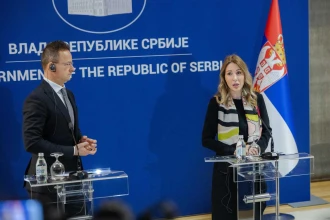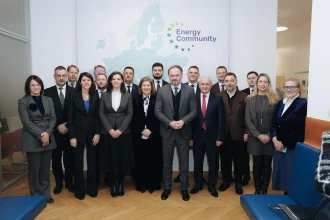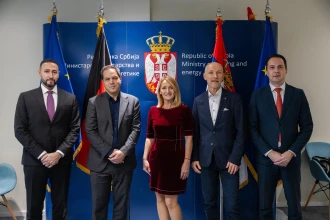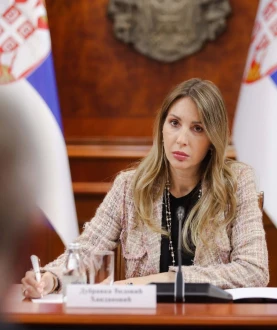Minister of Mining and Energy, Dubravka Djedović Handanović, met today with a delegation of the French state-owned electric utility company, EDF, to discuss cooperation in the energy sector, with particular emphasis on developing collaboration in the peaceful use of nuclear energy.
Djedović Handanović discusses development of cooperation in the peacetime application of nuclear energy with EDF delegation
Djedović Handanović emphasized that the Government of the Republic of Serbia is already laying the foundation for informed assessments regarding the potential for the implementation of a nuclear energy program based on the country's specific requirements and capabilities.
"During President Aleksandar Vučić's visit to Paris this year, a Memorandum of Understanding was signed with EDF for a strategic partnership and cooperation to establish a framework for long-term dialogue in the field of energy transition and low-carbon technologies. The exchange of knowledge and experience to strengthen local experts is the next step, and this is the direction in which we plan to deepen our cooperation with this company," said the Minister.
The EDF representatives briefed Minister Djedović Handanović on their business strategy, which includes the construction of a fleet of nuclear plants across Europe, within a comprehensive European value chain designed to enhance the competitiveness and resilience of energy systems throughout the continent, with Serbia envisioned as part of this process. EDF is Europe's largest electricity producer, employing 50,000 employees, including 7,000 engineers, in activities related to the development of the civil nuclear energy program.
"The Ministry of Mining and Energy will soon launch a public procurement process for the preparation of a preliminary technical study to explore the peacetime application of nuclear energy. Representatives of EDF have expressed interest in participating, which I consider very important, given their experience with similar projects in the Netherlands, Finland, Sweden, and across Europe," she said.
The Minister stated that the Integrated National Energy and Climate Plan, which is currently being adopted by the Government, considers the potential for the introduction of nuclear energy into the national mix of Serbia as a source of base-load power in one of its scenarios, as well as that a public consultation will be held during the summer to discuss proposed amendments to the Energy Law.
"The question of nuclear energy use must first be addressed at the legislative level, so Serbia can begin exploring the development of a nuclear program in line with International Atomic Energy Agency standards. In the future, we will need much more energy, primarily due to expected economic growth and development, and nuclear energy is a base-load power source that emits significantly less carbon dioxide than fossil fuels. We should therefore consider it as a potential solution on our path to energy transition," said Djedović Handanović.


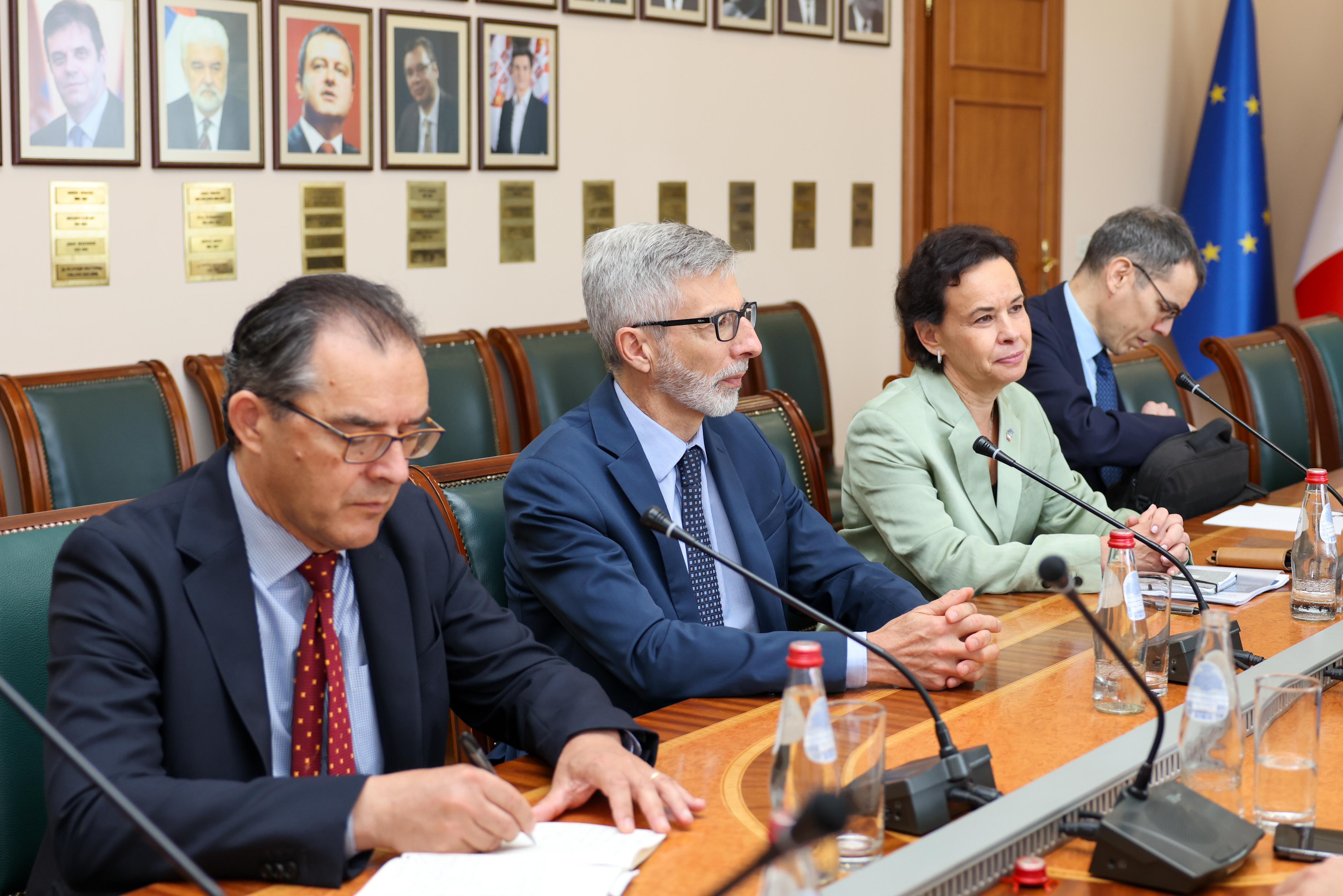
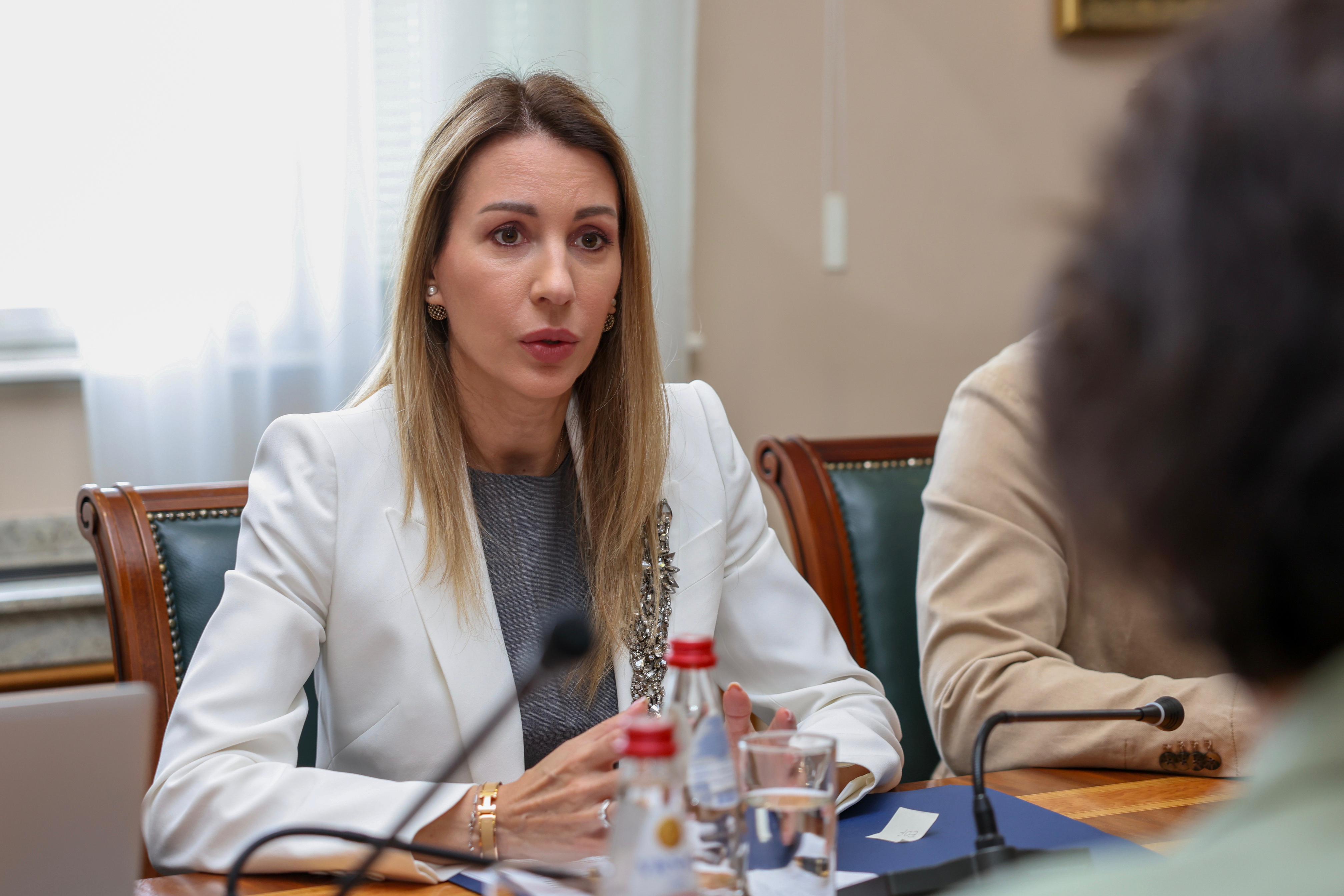
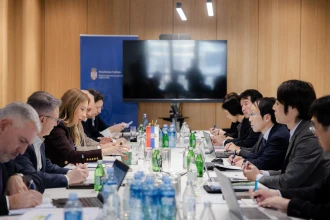
.webp)
